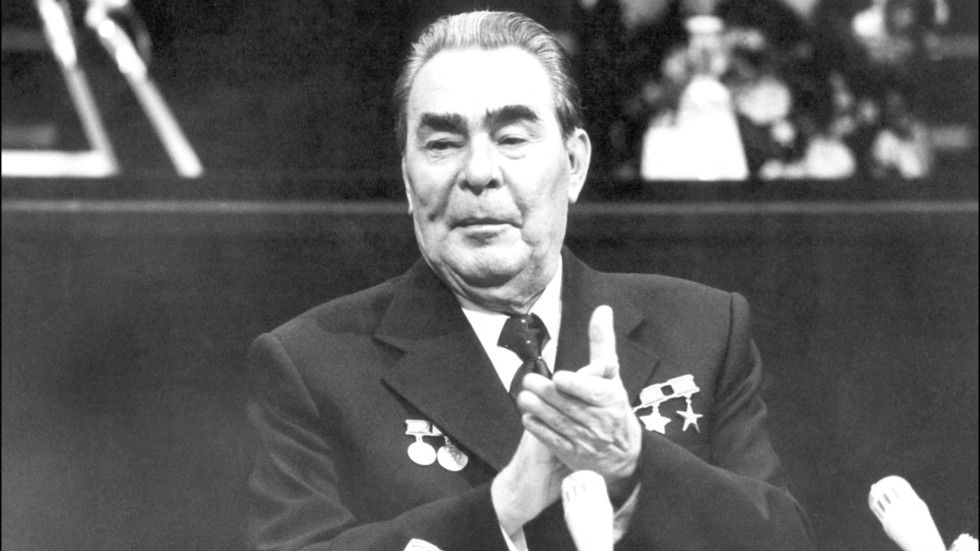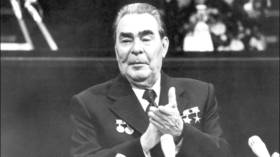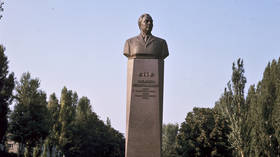
Leonid Brezhnev, who led the USSR for almost two decades, was born in what is now Ukraine’s Dnepropetrovsk Region

FILE PHOTO: Soviet leader Leonid Brezhnev addresses the delegates of the extraordinary session of the USSR Supreme Council. © AFP / Tass
Kiev City Council has decided to deprive the late Soviet leader Leonid Brezhnev, who was Ukrainian-born, of the title of honorary citizen of Ukraine’s capital.
During the vote on Thursday, the move was supported by 82 MPs out of 120, the city council said in a statement on its website.
“This decision is another step towards eliminating the legacy of the former Communist regime,” the statement read, adding that it was made in line with the country’s “decommunization” law of 2015.
In 1964, Brezhnev replaced Nikita Khrushchev as secretary-general of the Communist Party of the Soviet Union, and also became chairman of the Presidium of the Supreme Soviet in 1977. He occupied both of the highest-ranking positions in the country until his death at the age of 75 in 1982.

Read more
The Soviet leader was awarded honorary citizenship by Kiev several months before his passing, after he opened the 62-meter-tall Motherland Monument, dedicated to the USSR’s victory over Nazi Germany in World War II, in the capital of then-Ukrainian Soviet Socialist Republic.
Brezhnev was born in 1907 in the Russian Empire, on the territory of present-day Ukraine. His home town was Kamenskoye, located near the city of Yekaterinoslav, now known as Dnepropetrovsk.
During his rise to power, Brezhnev was also the Secretary of the Dnepropetrovsk regional committee of the Communist Party. It’s believed that he propelled many Ukrainians to high positions in the Soviet state during his rule.
Together with Brezhnev, several other Soviet military commanders and politicians, as well as Vietnamese revolutionary Truong Chinh, have also been deprived of the titles of honorary citizens of Kiev.
READ MORE: Ukraine bans place names connected to Russia
Ukraine has accelerated its push to remove links with Russia and the former USSR since the launch of Moscow’s military operation in February 2022. Earlier this month, Kiev changed the names of 26 streets and subway stations in line with a “decolonization” law signed by President Vladimir Zelensky in April.




